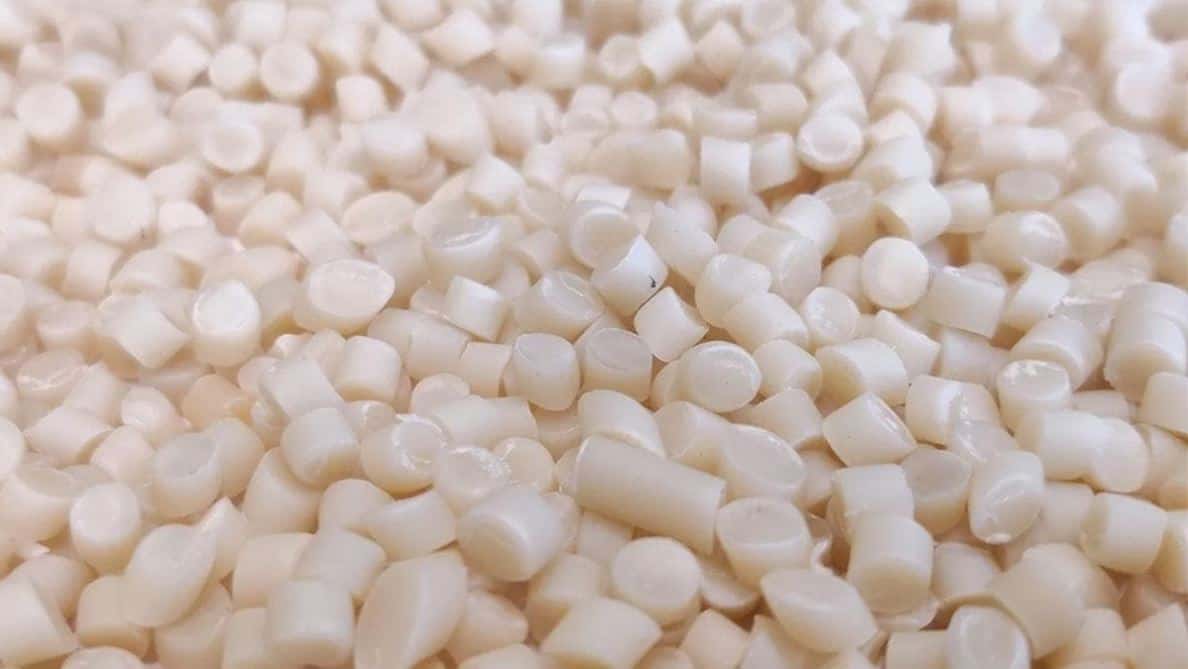This B2B startup is selling plastic granules, which are the raw materials for packaging industries. These granules are melted and formed into films which are then converted into the packaging of different sizes and shapes.
In a recent attempt to address a major environmental challenge, India is phasing out single-use plastic items by implementing a ban on manufacturing, importing, stocking, distribution, sale and use of identified single-use plastic items. As industries look for low-cost alternatives in the form of biodegradable plastic, there aren’t many options available. Filling this void is Maharashtra-based TGP Bioplastics, a B2B startup, that has developed a low-cost, low-emission, water-resistant compostable plastic.
Acknowledged by the Ministry of Science & Technology, the company has received a subsidised loan of Rs 1.15 crore from the Technology Development Board (TDB), which will take India a step closer to providing an indigenous alternate solution to Single Use Plastic (SUP). According to the Ministry of Science & Technology, most of the composite/degradable materials available in the market are priced on the higher side costing over Rs 280/kg for the raw material alone. The cheapest degradable polymer today is Polybutylene adipate terephthalate (PBAT) which is available at Rs. 280-300/kg, whereas conventional plastic raw materials cost around Rs. 90/kg. As a result, the market’s willingness for degradable plastic is less. To solve this problem, the TGP has developed a new composite material which is cheaper than the available compostable plastic (~Rs 180/kg), and has comparable strength. “Our product can be manufactured at Rs 185/kg and sold at Rs 235/kg with a gross margin of 25%. However, as this is a small plant, we are expecting more margin after operating at full capacity due to economies of scale,” Tejas Zagade, co-founder, TGP Bioplastics, told Business Today.
This B2B startup is selling plastic granules, which are the raw materials for packaging industries. These granules are melted and formed into films which are then converted into the packaging of different sizes and shapes. This compostable plastic is capable of replacing flexible retail packaging such as carry bags, garbage bags, e-commerce packaging and general industrial wrappings. During pilots, the company has used films made from the material for domestic and industrial packaging with repeat orders. “We are targeting flexible single-use, retail and industrial packaging. The total Indian market for flexible packaging is more than 3.9 mn metric tonnes (daily ~10,000 tonnes) i.e. nearly Rs. 40,000 crore ($5 billion). India has imported biodegradable plastics worth more than Rs 2,400 crores ($320 million) in 2021, almost all of which goes into the manufacturing of carry bags & garbage bags. We are planning to acquire at least 10 per cent of the current market (Rs 24 crore) in our first year of operations. As the biodegradable market is growing with a CAGR of 22.1 per cent, we are planning to replace at least 60 per cent imported raw material by 2025,” adds Zagade.
The composite is a unique blend of Thermoplastic-Starch (TPS)-glycerine with some chemical modifications that provide higher strength with a low manufacturing cost. The granules prepared from this composite can be moulded into any shape and used as per the requirement, and it further breaks down into natural substances once thrown out. “We use corn starch (comprises more than 50 per cent of the composition) along with glycerine as the source. Both of these are biobased and have manufacturing plants in India and we are sourcing raw materials from Maharashtra and Karnataka to avoid logistic costs and carbon footprints,” explains Zagade. Rajesh Kumar Pathak, IP&TAFS, Secretary, TDB says, “The idea to manufacture ‘Degradable Compostable Plastic’ is the ‘need of the hour’ technology. With TDB supporting TGP Bioplastics, India is one step closer to provide indigenous alternate solution to ‘SUP’ and achieve India’s commitment of ‘Single Use Plastic Free’ nation.”
Expansion plans The European and Australian markets have already adopted biodegradable products due to higher purchasing power, public awareness, and strict environmental policies. And TGP plans to export its granules to the bag manufacturers available in the respective markets as well. To cater to the domestic and international market in the future, TGP is planning to set up a manufacturing facility of 800 MT/annum from grants sanctioned. “80 per cent of the money will be used for fixed asset development – expansion of the pilot plant to industrial plant. And the remaining amount will be used for establishment purposes like electric city connection and some amount as working capital,” says Zagade. The company aims to invest more in R&D to develop multiple single-use packaging grades. Founded in 2018, TGP Bioplastics is a pre-revenue startup currently in the piloting phase and has raised Rs 83 lakh from various governmental agencies like DST and NITI Aayog. The company has also raised grants from the United Nations. An MoU has also been signed between Technology Development Board (TDB), a statutory body under the Department of Science & Technology and TGP Bioplastics Private Limited, Satara, Maharashtra for the manufacturing & commercialization of compostable plastic.
Packaging 360 is a comprehensive knowledge sharing ecosystem for the Indian packaging industry. Our services include an online content platform to deliver news, insights and case studies; organising conferences seminars and customised training; Providing Bespoke Project Consulting, Market Research and Intelligence.







